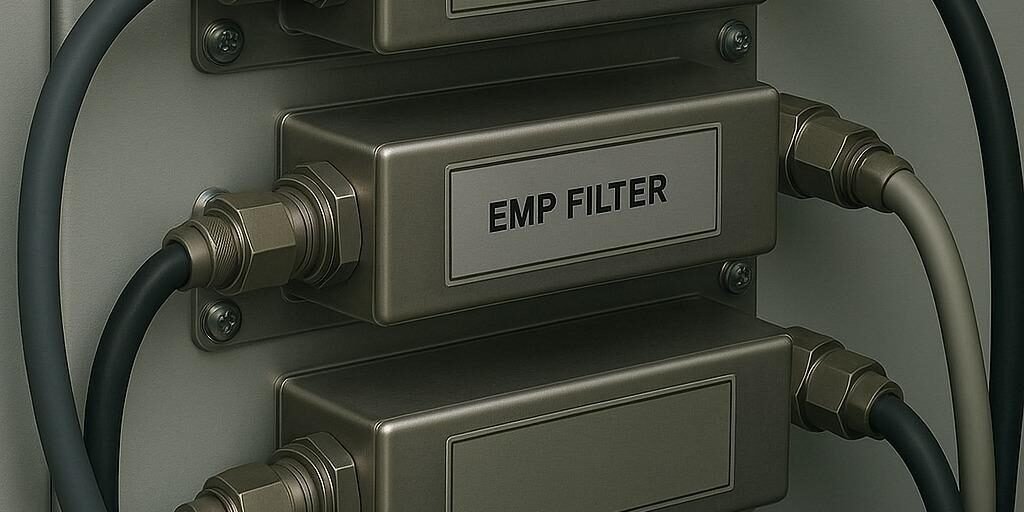We employ electronic equipment in nearly every aspect of our lives. Be it communication or security systems, electronics dominate the scene. What if a massive burst of energy destroys them all simultaneously? That is what an electromagnetic pulse (EMP) can do. An EMP may be triggered by natural causes such as lightning by sources such and nuclear explosions. To protect electronics from EMPs, we employ EMP filters are employed.
What is an Electromagnetic Pulse (EMP)?
An EMP is defined as a fleeting burst of electromagnetic energy. Electronic devices can be destroyed or harmed by an EMP.
There are three kinds of EMPs:
- Natural EMPs – Produced by lightning or solar flares.
- Nuclear EMPs – Produced by a nuclear explosion at high altitude above the earth.
- Non-nuclear EMPs – Produced from specific devices or weapons.
An EMP is capable of passing through air and wires. High electric currents are induced,circuits are overloaded, and devices are burned up as a result.
Why Are EMPs Hazardous?
EMPs are able to:
- Destroy power grids.
- Destroy computers and phones.
- Stop vehicles and aircraft.
- Destroy communication systems.
- Disrupt hospitals, banks, and security systems.
A single high-power EMP can hit an entire city or a country. That’s why electronics must be protected.
What Are EMP Filters?
EMP filters are devices that convert or demagnetize the harmful energy of an EMP. Individuals place them on data lines, appliances, and power cables.
They:
- Prevent high-voltage spikes.
- Keep harmful energy from reaching devices.
- Allow normal electricity and signals through.
EMP filters are quick. They respond in nanoseconds to prevent the energy surge.
Where Do We Use EMP Filters?
We install EMP filters wherever systems need to be preserved safe and operational. These include:
- Military bases
- Hospitals
- Airports
- Power stations
- Data centers
- Government offices
- Emergency services
EMP filters are also used in some people’s homes to secure private equipment.
How EMP Filters Work?
EMP filters:
- Identify rapid bursts of energy.
- Diverge excess energy to ground.
- Block the device from being damaged.
Most of the filters have materials that are able to absorb or deflect EMP waves. They are typically box-shaped or cylindrical. You may mount them on electronic panels or power lines.
How to Choose the Right EMP Filter?
When selecting an EMP filter, consider the following:
Voltage rating: Select a filter that is appropriate for your power system.
Speed: Select a filter that is fast to respond to surges.
Size: Choose the proper size for your equipment or system.
Use case: Choose a filter appropriate for your device type (power, data, etc.).
Always follow the manufacturer’s guidelines when installing filters.
Why Should You Use EMP Filters?
These are some sound reasons:
Prevent costly damage: Electronics are costly to replace.
Be prepared: EMP events could hit at any time.
Preserve lifesaving services: In hospitals or security networks, seconds are important.
Keep connected: Phones, the internet, and data must remain secure and operational.
Conclusion
EMP events are not common, but their impact can be catastrophic. EMP filters offer a clever and straightforward way to shield important electronics. For an entire system or single piece of equipment, employing EMP filters maintains operations business as usual. Don’t wait until disaster happens—get your electronics protected today with the proper EMP filter.
Contact DMC today. Let’s see how we can help you achieve the dependable data you require.

